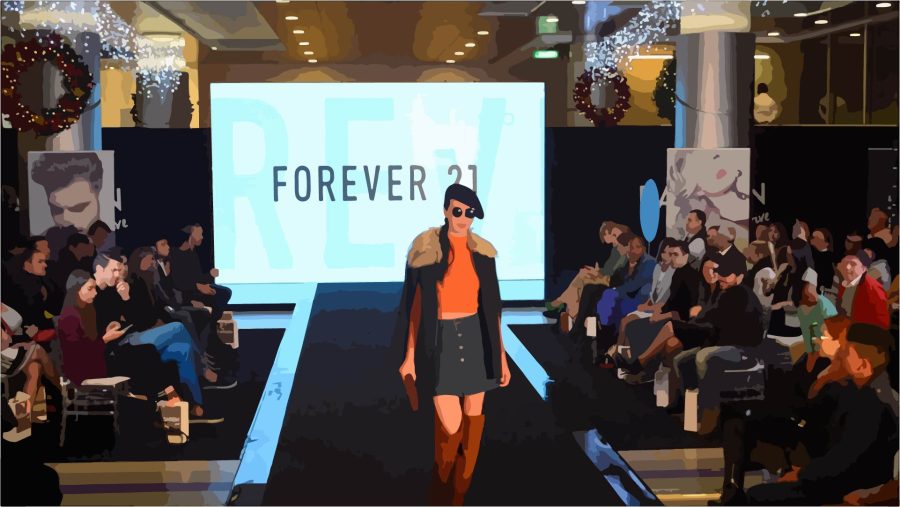You walk into Forever 21 and spot a cute top. Only $12? What a steal! But if you look past the price tag, there is more to it than meets the eye.
The industry of fast fashion — a term for clothes that are mass produced and, in turn, disposable and cheap — is riddled with waste, pollution and human rights violations. The production of “fast fashion” clothing requires heavy amounts of chemicals and water — one pair of jeans usually costs about 7,000 liters of water, according to environmental organization Greenpeace. According to Fortune Magazine, consumers are like to discard garments after only seven or eight wears due to low costs and expendability; in 2013, 15.1 million tons of textile waste were discarded.
Zara, Adidas and Forever 21 are just a few names that are prominent in fast fashion. These brands flourish due to the fact that everyone loves a good deal and it is tough to get customers to change their buying habits.
However, there are a few brands in the fashion and makeup industry pushing for increased transparency and waste reduction.
The skincare and makeup brand Glossier is reexamining the beauty industry and cultivating a revolutionary set of new beauty products. The online makeup store started as a blog called “Into the Gloss,” which was home to various product reviews and interviews with makeup experts.
In order to ensure customer satisfaction, Glossier makes products based on customer feedback. They communicate with customers frequently and ask for input via social media. While the brand’s collection is minimal, the products they do make are extremely popular.
Through this method, Glossier has created a cult-like following. Through their new methods of production, they are being more conscious of the products they produce and are transparent in their production methods and materials.
In their product descriptions, Glossier states exactly what goes into each one of their products. By creating precisely what customers want and using sustainable ingredients, the amount of waste created is low.
Based in San Francisco, e-commerce fashion site Lisa Says Gah also focuses on fostering a close relationship with the consumer to bring them the best products from sustainable, ethical fashion brands. Through this relationship, founder Lisa Williams says brands are taking ownership and increasing transparency in the design and production processes.
“I’m not filling a style-count quota with Lisa Says Gah,” Williams said in an interview with the blog “The Messy Heads.”
Tidal Vision is another clothing startup that pushes for sustainable products made from ocean waste, such as salmon skin and crab shells. It was created by Craig Kasberg, who spent years working on an Alaskan fishing boat where he realized how wasteful the fishing industry is. He negotiated with fishing companies for their fishing scraps which they would otherwise dump in the ocean, to create usable products that textile companies can buy for garments. One of the startup’s most popular product is their salmon leather, which is less wasteful to produce than cowhide leather.
Several books have exposed the detrimental world of fast fashion, including “To Die For: Is Fashion Wearing out the World?” Author Lucy Siegle pushes consumers to build a more sustainable wardrobe through buying slower, buying vintage and thrifting. The book also touches on the ways that large entities — like the government — can pass and maintain labor laws.
Changing the wasteful fast fashion industry begins with educating others and bringing awareness to the issue. Sustainable fashion and makeup brands like Glossier, LSG and many others are already making strides toward changing consumer behavior and teaching consumers to resist the pull of low prices.




Kat • May 28, 2020 at 7:13 am
I enjoy buying at stores like Forever 21 but lately their selections have been boring. It doesn’t do any justice with their price mark. This is why a lot of consumers are moving away from fast fashion.